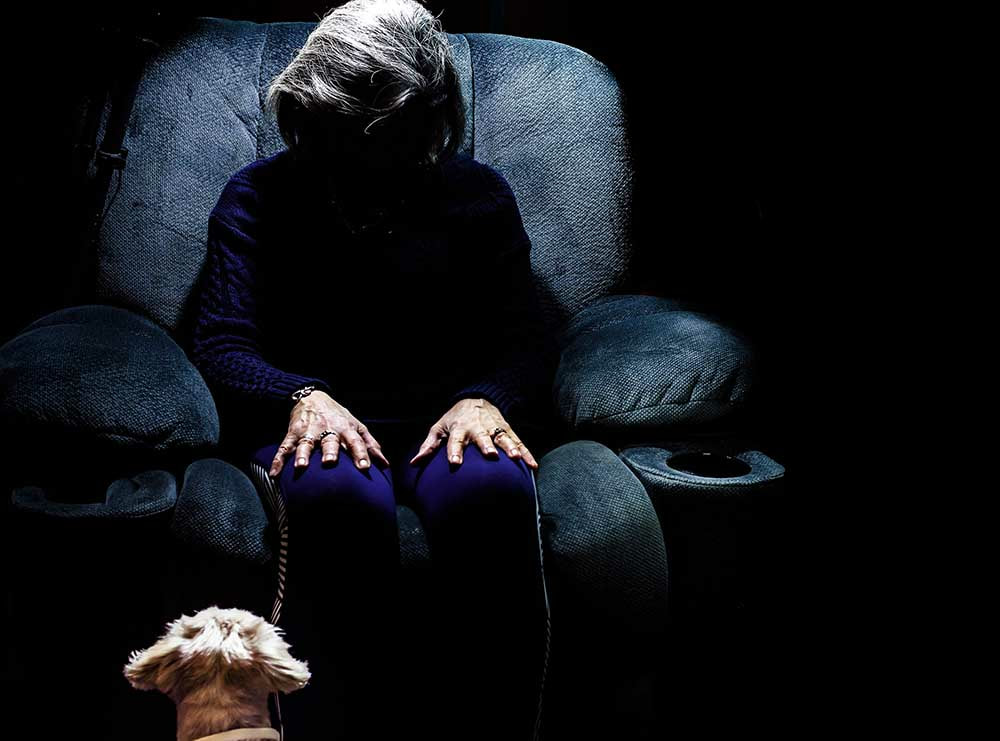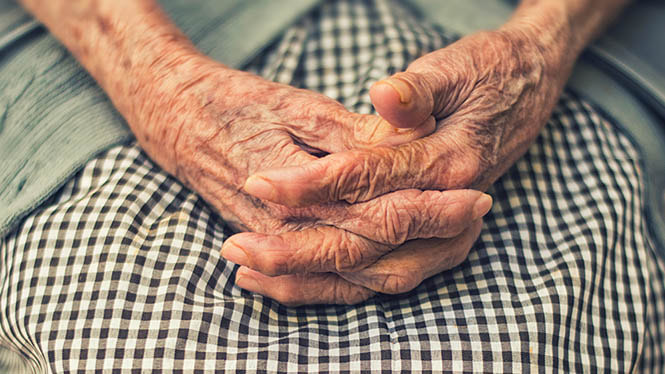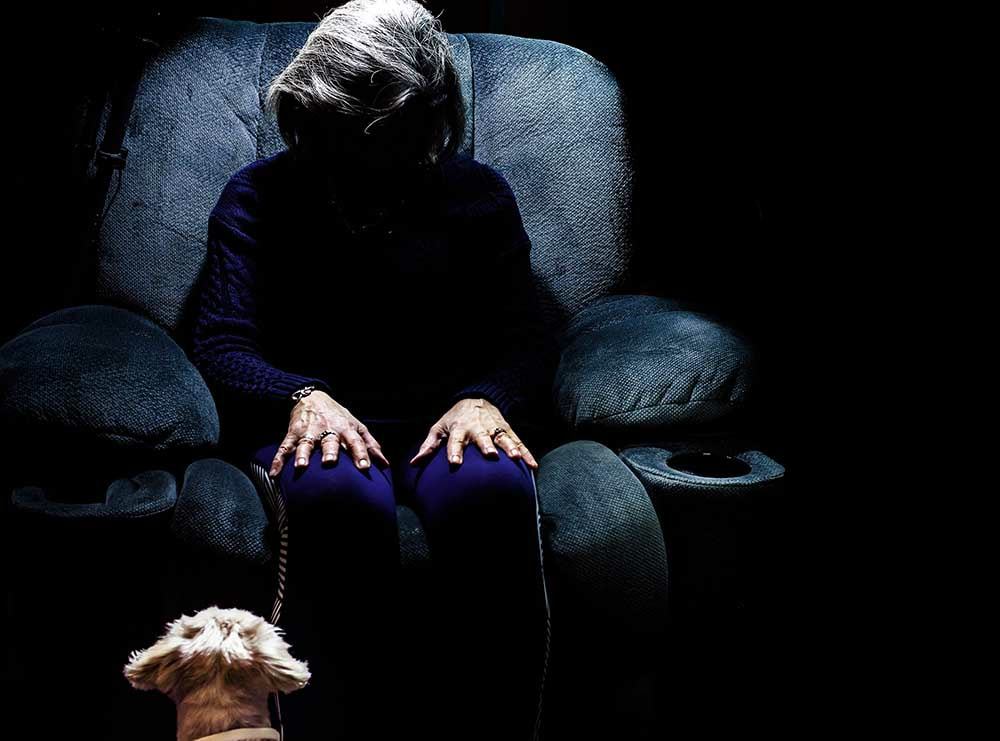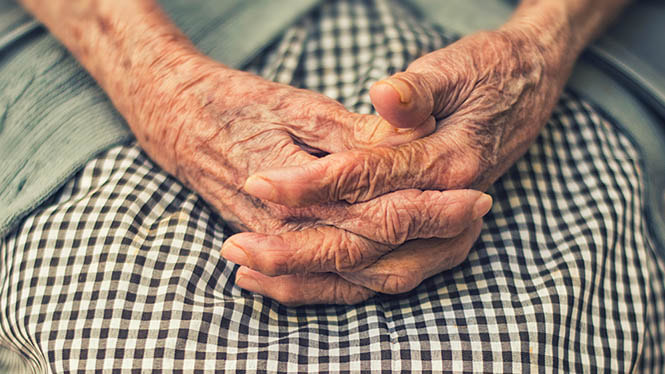|
A New Jersey nursing and rehabilitative facility was fined $600,000 after nearly a dozen children died and many more were sickened after an adenovirus swept the facility. An investigation by state and federal officials reveal that poor hand washing practices and lapses in infection control posed a severe risk to the vulnerable patients in the facility likely contributing to the spread of the virus.
Even after the adenovirus took hold, nurses and other personal were observed not washing their hands between handling equipment attached to patients and themselves or other equipment, including respirators and feeding tubes, providing a means for the virus to spread in the patient population. Although adenoviruses typically cause mild illness, medically fragile patients are at naturally higher risk for developing life threatening symptoms. Poor hygienic practices in the nursing home and a failure to respond to the growing crisis likely played a role in the severity of the outbreak. Unsanitary conditions in a nursing home can easily put a family member at risk for serious health problems. Patients and their families have a right to expect the nursing home to be clean and hygienic and that the residents personal hygiene needs are met. Along with food and water, hygiene is the most basic level of care that should be expected, however many nursing home residents are forced to live in filthy conditions putting their health in jeopardy. If the lack of hygiene in a nursing home becomes more than an isolated incident, it may constitute nursing home neglect. Certainly, when residents are subject to unsanitary environments, the likelihood of developing infections or other medical complications increases. Nursing home and rehabilitative care facility residents are often unable to stand up for themselves and may endure unsanitary conditions or other types of nursing home neglect or abuse that put them at risk. If your family member has been injured in a nursing home due to negligent care or nursing home abuse, contact the Des Moines nursing home abuse lawyers of Hemminger Law Firm for assistance at 515-283-2116.
0 Comments
Nursing home abuse is a serious issue, with neglect considered one of the most common forms of abuse found in facilities across the country. Neglect occurs when a nursing home resident does not receive the care he or she needs – the very reason many families trust their loved one to a nursing home in the first place! The level of care needed varies of course, but it often includes basic hygiene, assistance with meals and helping residents with mobility which some nursing homes do not provide on a consistent basis, putting vulnerable residents at risk for health problems.
To prevent injury to their loved ones, family members should remain vigilant and look for signs of neglect and abuse in the nursing home setting. There are a number of signs which may point to a problem which often include poor personal hygiene, unsanitary living conditions, loss or lack of mobility, poor nutrition, injuries and psychological issues. Personal hygiene is a big part of the responsibility that nurses and staff provide in a nursing home setting. Many residents require help bathing, brushing their teeth, getting dressed and combing their hair every day. Hygiene is a key part of staying healthy, especially when it comes to dental care which is a serious issue in nursing homes across the country. Nursing homes must provide a safe and clean environment for residents. Failing to establish and maintain an infection control program designed to provide a safe, sanitary and comfortable environment for residents may point to neglect. Unsanitary living conditions can set your loved one up for a host of problems. Mobility is by far one of the most challenging aspects of getting older. To prevent health issues such as bed sores and infections, nursing homes must help residents to move around, exercise and remain as active as possible. Residents should be encouraged and provided assistance to build muscle tone and strength, improve circulation and increase balance to prevent injuries from occurring. If your loved one is left in bed for long periods of time, he or she runs the risk of losing all mobility and their health can deteriorate quickly. Some percentage of nursing home residents suffer from malnutrition and dehydration often caused by inadequate staffing. Poor nutrition affects millions of people in nursing homes across the country and can result in rapid physical decline. If your loved one has suffered broken bones, head injuries or has unexplained bruising, these may be indicators of neglect. Just by not helping an elderly person walk across the room might set them up for a fall when they try to do things for themselves. Falls are very prevalent among the elderly and can led to significant disability and even death so it is important that nursing home provide assistance. Emotional changes should be taken seriously also. If your loved one grows distant or seems depressed, anxious or fearful, there may be a problem with the care they are receiving. They may even begin to neglect themselves by refusing to eat, take medication or perform basic hygiene when they are suffering from emotional duress. Unfortunately neglect is a pervasive issue across nursing homes and can causes serious physical and psychological harm to residents. If your family member is injured in a nursing home setting and you suspect negligence played a role, it is important to seek help. Contact the Iowa nursing home abuse and neglect attorneys of Hemminger Law Firm for immediate assistance at 515-283-2116. Unfortunately, nearly every day we read accounts in the newspaper regarding negligent care in nursing homes around the country that have resulted in injury. Some negligence has even resulted in the deaths of nursing home residents. Although family members who have lost a loved one in a nursing home may think that it was unavoidable, all too often, injuries in nursing homes occur because of neglect. Families who later become aware that neglect played a role in their loved ones injury often want to hold nursing homes accountable for injuries to stop it from happening again.
A lawsuit claiming that a nursing homes staff’s negligence caused the death of a women is playing out in Kansas demonstrating how quickly things can go wrong for elderly residents. The lawsuit alleges that the resident, an elderly woman of 88, injured her leg on the foot pedal of a wheelchair, resulting in an injury that continued to worsen despite the administering of antibiotics. When the family asked to have their loved one transferred to a wound care facility for treatment sooner than the scheduled date, they were refused and eventually the woman was admitted to a hospital where she deteriorated quickly – all for what started out as a bruise. The lawsuit claims that staff negligence caused the death of the resident and the plaintiffs are asking for a jury trial and tens of thousands in compensation to right the wrong. In yet another case out of Virginia, a lawsuit is ongoing regarding a man who developed life threatening bedsores months after being admitted to a nursing home. Bedsores are areas of skin that become damaged when a person stays in a position for too long and typically form in higher pressure areas where bones are closer to the skin, such as at the ankles, back, elbows, heels and hips. They can be prevented by keeping skin dry and clean, changing positions regularly and relieving pressure, but if they are allowed to set up and go untreated, they can cause life-threatening infections. In the suit, attorneys for the family allege the decedent sustained injury and/or death as a direct result of the defendants’ negligence and are asking for 3 million in compensation, which, if awarded, will likely result in changes at the facility. Family members who have had a loved one suffer from an injury that occurred in a nursing home may be unaware that there may not have been adequate staff on hand, that there may have been hazards that were not addressed, that training was non-existent, or that protocols were ignored that resulted in the injury. If your family member is injured at a nursing home facility it is always a good idea to discuss your concerns with an experienced nursing home injury attorney who can determine if negligence was a factor. The best way to check nursing homes guilty of abuse and neglect is to hold them accountable so that they will change their practices and provide the care elderly residents really need. Contact the Iowa nursing home injury, elder abuse and neglect attorneys of Hemminger Law Firm for help at 515-283-2116. Care related to sepsis is the most common reason for transfers of nursing home residents to hospitals, resulting in more fatalities than hospitalizations for other conditions. Sepsis, a bloodstream infection, can develop in bedridden patients with illnesses such as pneumonia, but can also be a result of untreated bedsores which are preventable if the necessary precautions are taken. Because bedsore infections are a well-known danger it follows that patients who are immobile should be turned and re-positioned at regular intervals and checked for signs of a developing bedsores in order to treat them before they progress. Yet year after year, nursing homes across the country fail to prevent bedsores and other infections that lead to sepsis, putting patent lives in jeopardy. If bedsores and associated infections are preventable and highly treatable in their early stages, why are so many nursing home patients afflicted? Unfortunately, it boils down to low staffing levels according to regulators and patient advocates. Not having enough hands on deck diminishes the quality of nursing home care overall so patients do not receive the care they need to prevent bedsores, and by the time problems are detected, little infections have turned into big infections that are difficult to treat. Not surprisingly, many families of nursing home residents across the country have file lawsuits alleging that bedsores and other common infections have caused serious harm or death. The outcome of the numerous cases that are brought every year is not known because most result in a settlement with confidential terms, however, nursing homes likely pay substantial sums when their negligence results in injury or death. Contact an Experienced Bedsore Infection LawyerIf your family member is suffering sepsis from untreated bedsores or is injured due to the negligence or abuse in an Iowa nursing home, contact the Des Moines Law Offices of John T. Hemminger for immediate help at 515-283-2116.
Assisted living is often sought as an alternative to a nursing home for elderly people that are largely independent, but still require some assistance. However, four in 10 residents in assisted living facilities suffer from dementia and require much higher levels of care than an assisted living facility can typically provide.
Although assisted living care facilities market their services to people with cognitive difficulties such as Alzheimer’s, many facilities across the country struggle to deliver the care needed to keep residents secure and provide the attention they need and, not surprisingly, many violations occur. With dementia care the fastest-growing segment of assisted living, there are concerns that cannot be ignored. Many believe that these for-profit facilities do not staff to the level necessary to meet the needs of residents, which all too often can lead to neglect or even abuse of elderly residents in their care. Contact An Experienced Assisted Care Facility Injury Attorney For Help If your loved one has been injured by negligence or abused in an assisted living or nursing home setting, it is important to seek help. Contact the Iowa nursing home elder abuse and neglect personal injury attorneys Hemminger Law Firm for immediate assistance today at 515-283-2116. Many families who entrust their loved ones’ care to a nursing home quickly realize they have to keep a close eye on and ask questions about the care their relatives are receiving. Not only is there the risk of mistakes being made that can result in injury or death to a nursing home resident but also the threat unnecessary care for financial gain.
Particularly disturbing is a recent study published in the Journal of American Medical Directors Association (JAMDA) which reveals nursing homes’ increasing practice of providing intense levels of rehabilitative therapies to residents in their final days of life. Practiced by twice as many for profit homes as nonprofit, these last-ditch, expensive services raise questions as to whether they are helpful to residents or simply a lucrative source of revenue for the nursing homes. Perhaps the most troubling part of the study is the suggestion that residents are not being referred to hospice care where their comfort is the priority, but rather held back to undergo perhaps needless rehabilitative therapies in their final days, spelling big profits for the facilities in which they reside. Unfortunately with a model of reimbursement based on the delivery of services rather than a patient’s needs, the potential for shenanigans is high. Although some rehabilitative therapy undoubtedly provides benefits to patients, the research suggests that the scope and intensity might be excessive, perhaps even causing discomfort to patients in their final days. Nursing home abuse and negligence are an unfortunate reality so it is very important for nursing home residents and their families to remain vigilant regarding the care they receive, whether it be excessive or inadequate. Care provided in a nursing home should fit the needs, goals and wishes of the nursing home resident and their families with the help of their doctor – not to improve the nursing home’s bottom line. If your family member is injured by unnecessary care delivered in a nursing home, or by any other nursing home negligent care, contact the Des Moines nursing home neglect and abuse law offices of John T. Hemminger for immediate help. In 2016, nearly 20 percent of Medicare recipients discharged from the hospital were readmitted within 30 days. In what researchers are calling post-hospital syndrome, the stress of staying in a hospital and disruptions such as interruptions to sleep, weight loss, and physical deconditioning present an overall health at risk to seniors who may never regain their health without proper care following discharge.
When seniors emerge from hospitals, often in a weakened state, many require a continuation of enhanced care. Discharge marks the start of a 60 to 90 day period of increased health related vulnerabilities stemming from the hospitalization itself and it is vitally important that the elderly receive competent care in nursing homes, assisted living facilities or the home environment. Researchers say hospitals can do a better job and those caring for the elderly after a hospitalization must be vigilant. Addressing issues such as awakening a patient at all hours of the night to take vitals, serving irregular meals, lack of mobility, and pain management gaps – all of which can have negative ripple effects on health – may be a good place to start. When elderly patients are discharged back to nursing homes, assisted care facilities or private homes, it is equally important to provide the correct standard of care or risk a return to the hospital. The after effects of hospitalization can be profound, sometimes robbing a loved one of their health and independence. If your family member has been neglected in a nursing home resulting in an initial or subsequent hospitalization, it is important to seek help of an experienced nursing home neglect and abuse lawyer. Contact the Des Moines nursing home injury attorneys Hemminger Law Firm for immediate assistance at 515-283-2116. When an aging family member requires care in a nursing home, many know to ask about staffing, but sometimes it is difficult to understand what exactly a typical resident needs. It is an important consideration because understaffed nursing homes can be dangerous to residents.
Staffing metrics are often broken down as time per patient per day. So, if for example, a nursing home has one nurse working a 10 hour day with 10 patients, the staffing time can be interpreted as one hour per resident per day. If that same nurse has 20 patients, the staffing time goes down to 30 minutes per patient per day. How much is enough? A federal study estimates that the clinical needs of nursing home patient can be met with anywhere between .55 to .75 registered nurse hours combined with just over 4 hours of direct care from others such as orderlies, nursing assistants, techs or staff members. How does the U.S. measure up to this reasonable standard of care? Not so well it turns out. A 2017 study reveals that 70 percent of nursing homes have staffing levels at 30 minutes per resident per day or less, with some as low as zero minutes per resident per day. Direct care levels from others were also deficient, with 30 percent of nursing homes providing less than 3 hours of care instead of the 4 or more hours needed to care for residents properly. When looking for nursing home care for a family member, ensuring that the home has adequate and competent staffing is one of the most important considerations. Unfortunately, many nursing homes around the country function at frighteningly low levels of staff putting your loved one at risk for injury or premature death so it is critical to ask questions before signing on. Understaffed Nursing Homes Can Be Dangerous to Residents Contact an Experienced Iowa Nursing Home Injury Lawyer If your family member has been injured in an Iowa nursing home, it may very well be due to an unacceptable shortage of staff or staff who lack proper training. In the event your family member is hurt, it is important to seek the help of an experienced Iowa nursing home attorney not only to hold the facility accountable but also pursue compensation for your family member’s injuries. Contact the Des Moines nursing home lawyers of John T. Hemminger for immediate assistance today at 515-283-2116. Many U.S. nursing homes have serious quality problems, in part, because of inadequate staffing levels. By not providing the appropriate amount of staff, residents are at a higher risk of death, infections, complications, falls, failure-to-rescue rates and admission to the hospital.
New federal data reveals that nursing homes have for years fudged their numbers when reporting how many staff they have on hand to care for their residents. Daily payroll records analyzed by Kaiser Health News tell the tale of nursing homes gaming the system by self-reporting more staff on hand to the government, sometimes translating into a higher score on the government’s five star rating program many use to find reliable nursing homes. Results of the analysis show particularly thin staffing in nursing homes during the weekend, leading one resident to say “it’s almost like a ghost town”. A spokesman for the American Health Care Association chalks up the poorly staffed weekends to the fact there are fewer programs during the weekend and some residents have family members to assist them. However, nothing can replace trained nursing home staff when residents need help. Without adequate staffing every day of the week, seniors in pain can go without medication, meals may not get delivered, essential medical tasks such as repositioning patients to prevent bedsores are overlooked – all of which could lead to avoidable hospitalizations for vulnerable residents. The exaggerated claims by nursing homes across the country come as no surprise to many families who have had loved ones suffer an injury due to negligence or abuse in a nursing home. A simple lack of enough caregivers at any given time can spell real trouble for elderly residents who depend on nursing homes to deliver the care they need, when they need it. Contact a Des Moines Nursing Home Abuse and Neglect Lawyer If your family member has been injured or abused in an Iowa nursing home, contact Des Moines nursing home abuse and neglect lawyers of John T. Hemminger Law for help today. In fifteen years, the percentage of the population 65 and older will more than double in the U.S. requiring a tenfold increase in care workers. A tall order, considering that the care industry sector is steadily shrinking, which may very well open up a market for robots to fill the void of caring for the elderly in the near future.
While many acknowledge robots are far from ready to even touch or handle a human being, some foresee a time not so far off when robots will play a supporting role in many nursing home or other care facilities. As digital companions or animatronic pets, these robots are designed to entertain, listen and console, leaving the heavy lifting of moving patients or administering meds to their human counterparts. What seems oddly futuristic to some, is seen as an opportunity to increase productivity, profit and efficiency to others. However, the plan assumes that human interactions or bonding is not a big part of why someone goes into the care industry in the first place. By relegating human care workers to the mundane tasks of changing bedpans and giving shots while the robots have all the fun, the exodus of care workers may just be getting started. And what of the elderly? Will a metal hand of a robot suffice? The research is out on whether displacing social and physical contact onto machines is psychologically sound so it’s anyone’s guess, but the collective gut says no. The coming demographic crisis is real and many baby boomers will need care in the absence of extended family or other caregivers sooner rather than later, so something has to give. If not the robot, then who? We’ve already seen how nursing home negligence and abuse can occur when nursing homes are understaffed, so perhaps the time has come to provide better pay and respect to attract care workers to the industry along with needed training and support to ensure the most vulnerable in our population are cared for. If you or a family member has suffered neglect or abuse in an Iowa nursing home, contact the personal injury law offices of John T. Hemminger for help at 515-283-2116. |
What We Do Really Well Workers' Compensation
Motor Vehicle Accidents
Personal Injury
Nursing Home Neglect
Categories
All
Archives
April 2019
|
- Home
- Attorney Profiles
- Firm Overview
-
Personal Injury Practice Areas
- Workers' Compensation
- Motor Vehicle Accidents
- Personal Injury
-
Nursing Home Neglect
- Nursing Home Neglect Overview
- Nursing Home Injuries Info
- Negligence in the Nursing Home
- Nursing Home Injuries FAQs
- Nursing Home Injuries Overview
- Nursing Home Injuries Resources
- Proving Damages in Nursing Home Abuse
- Protection of Nursing Home Residents in Iowa Nursing Homes
- Nursing Home Resident Rights
- Social Security Disability
- Client Reviews
- Contact Us
- Home
- Attorney Profiles
- Firm Overview
-
Personal Injury Practice Areas
- Workers' Compensation
- Motor Vehicle Accidents
- Personal Injury
-
Nursing Home Neglect
- Nursing Home Neglect Overview
- Nursing Home Injuries Info
- Negligence in the Nursing Home
- Nursing Home Injuries FAQs
- Nursing Home Injuries Overview
- Nursing Home Injuries Resources
- Proving Damages in Nursing Home Abuse
- Protection of Nursing Home Residents in Iowa Nursing Homes
- Nursing Home Resident Rights
- Social Security Disability
- Client Reviews
- Contact Us
Located in South Des Moines, Iowa, the Hemminger Law Firm provides experienced personal injury representation for clients throughout Central Iowa, including Polk County, Warren County, Marion County, Lucas County, Madison County and Dallas County, as well as the cities Cedar Rapids, Ames, Marshall Town, Fort Dodge, Indianola, Chariton and Ottumwa.
© 2024 Hemminger Law Firm. All rights reserved.
Site powered by Digital BusinessEdge






